Fresh Meat: Best New Artists (November, 2021)
Featuring Chrystel, Klein & more
Featuring Chrystel, Klein & more
With only thirty calendar days left till the end of the year, it’s impossible not to take stock of the leaps that Afropop has made this year. In the last eleven months, Africa to the world has become a popular rallying cry used to champion the continent’s artists, whose diverse work speaks in every mother tongue to the breadth and universality of Africa’s musical gifts. This year alone, Afropop has garnered new levels of recognition, taking the world by storm, thanks in no small part to streaming and direct-to-consumer apps such as TikTok and Thriller.
While many of its frontrunners currently enjoy mainstream success and ubiquity, this watershed moment for African music hasn’t skipped the continent’s newcomers who have spent most of the past year, edging out the competition and making a name for themselves rooted firmly in their genre-defying boundless music. Keeping up with our mission to champion those who are breaking boundaries and adding some value to the music ecosystem, our penultimate installment for the year is no different.
As usual, our selection of artists do not cater to any stringent sonic rules, emboldening the diversity of the music being made by young Africans on the continent and in the diaspora. From British-Nigerian classical act, Klein who is inverting genre norms to South Africa’s gospel-leaning SIPHO., here are the new artists you need to be paying attention to.
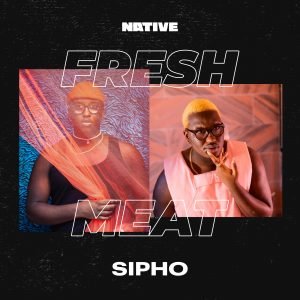
Born and raised in Birmingham, music played a big role in SIPHO.’s life. While growing up with his family, he was introduced to a range of talented musicians as well as organised religions. But while seeking out his own understanding of God, SIPHO.’s view of religion grew darker due to the misplaced focus of modern religion that placed materialism on a pedestal. “Being in this church, you see how headstrong people could be about their beliefs,” SIPHO. told the Guardian earlier this year. “However, a part of a lot of religions is this idea that you should not be prideful or stubborn about things. I came to the conclusion that there might not be one single explanation to it. We all just know that we feel a presence, whatever it is, and we call it God.”
As he retreated from church, SIPHO. found comfort in music, making songs that blended elements of Soul and Electro-pop into a distorted, post-2010 conception of R&B. On 2016’s ‘C R U X,’ the singer accescorised his music with parts rooted in Hip-Hop tradition, transforming songs like “Monument” and “The Sinner’s Interlude,” interpolating Kendrick Lamar’s “Bitch Don’t Kill My Vibe,” into earnest conversations on self and its intersection with the wider community. While studying songwriting at Birmingham’s BIMM Institute, SIPHO.’s music caught the attention of Dirty Hit – home to stars like Beabadoobee, Rina Sawayama and the 1975 – where he released 2017’s ‘I DON’T DESERVE HER.’
The most polished version of SIPHO.’s candid music can be found in 2021’s ‘AND GOD SAID’ where the singer imbibes gospel influences on songs like “BODIES” and “WE AIN’T.” Right at the centre of the project is the powerful double track, ‘MOONLIGHT PT. 1+2’, where the singer displays his command of Rap and Soul with astute dexterity; but the real showcase comes later on “ALMOST LOST.” On the self-produced song, Sipho examines his relationship with religion and the divine over fleeting flourishes of piano keys that provide a base for his syrupy voice and display his promising future as a soul-pop star in the making.
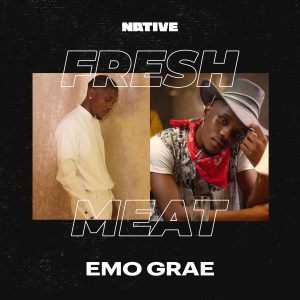
Making a splash in today’s hyper viral music industry is difficult for any artist. However, when you’ve got the backing of one of the biggest names in Afropop, namely one as ubiquitous as Naira Marley, success is pretty much foreseeable in one’s trajectory–all things considered. Officially activated last summer, the singer and songwriter Emo Grae, born Opeyemi Michael Edebie has been inching towards his breakthrough, following in the steady footsteps of labelmates Zinoleeksy and Mohbad who have enjoyed mainstream success.
Born and raised in the streets of Ojodu, Lagos State, Emo Grae nurtured his passion and love for music at a young age. Despite his lack of access to the resources he needed to kick start his career, the young singer would spend many years patiently fine-tuning his craft, awaiting his moment to step into the limelight and showcase his star power. He caught this big break in July, during the thick of the COVID-19 pandemic when he signed to Marlian Music, a pivotal moment in his career which consolidated his pop star potential.
So far, Emo Grae has released six official singles including his 2019 debut “Need You,” a romantic track that finds him pining for a lover, the Buju-assisted breakout track “0903” and recent releases such as “Mine,” “Gone” and the balmy new number “Suddenly.” The common denominator in all these tracks lies in Emo Grae’s ability to convey his deepest and most sincere emotions with bleeding sincerity, tracking how we fall in, out of, and back into love. Flaunting a unique tone of voice and positively catchy hooks, Emo Grae sings about romantic dalliances and savouring the genuine rush of a new crush, toeing a similar line to the sea of past heartthrobs, such as Korede Bello and CKay, that have come to permeate Afropop. With only a handful of singles and a debut project on the horizon, we can’t wait to hear what comes next.
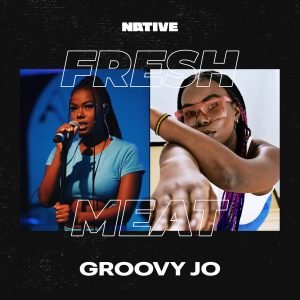
About half of Groovy Jo’s Instagram feed is dedicated to the low-stakes act of freestyle covers. Beyond her appreciation for the songs, there’s no obvious method to what music she chooses to give this treatment, and that freedom allows her to meld the mellow Afropop of Omah Lay, the energetic Trap of Kahu$h, an Erykah Badu cut here, a Major League DJz cut there, throwback jams by Nicki Minaj and JAY-Z, and much more. While she often finds her way to stay on topic, these freestyle covers have proved to be conveyor belts for her entertaining lyricism and rap versatility.
Beginning her music career in 2018, the rapper’s earliest offerings were rough-hewn tracks that highlighted a talented rap artist finding her voice. By the end of 2019, she’d amassed enough goodwill on the back of her potential to be nominated for Best Female rapper at the Unkut Awards, and in 2020, she consolidated with multiple single releases, several of which made it to her debut mixtape from earlier this year. Even though it’s only her first project, ‘The Groovy Way’ is a culmination of Groovy Jo’s early development as a rap artist, powered by an unflappable self-conviction and a widescreen musical approach.
“They say Groovy conceited, I agree sir/Me, myself and I is what I breathe for,” she raps on Shrap—the Kenyan new school variation of Trap—standout “Wykat,” one of the many infectious, aggrandising lyric lines that litter the entire tape. The boasts are complemented by a range of beats that include Reggaeton-infused turns and UK Drill-inspired thumpers. Wholly, ‘The Groovy Way’ is incredibly fun, defined by Groovy Jo’s ability to find a pocket and deliver the hardest, most self-reverential raps she can muster. In the near future, though, we might get more thematic range from Groovy Jo. Her latest single, “Clear Picture,” is a ruminative turn on what it means to be Black and ambitious in a world dominated by whiteness, and on a continent lorded over by inept leaders. Obviously, on her first attempt on wax to offer social commentary, Groovy Jo’s voice isn’t as sharp as when she’s issuing brags and caustic takedowns, but it shows a commitment to artistic growth, which will pay off in terms of longevity and a higher ceiling as she approaches rap stardom.
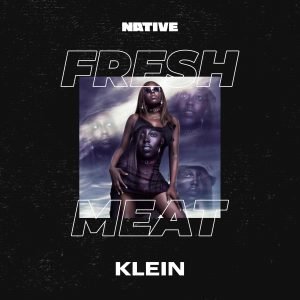
You might be wondering why a talented act such as British-Nigerian artist Klein features on our Fresh Meat roundup this month. With accomplishments that include sharing global stages with Björk, Wu Tsang, Mark Leckey and more, the genre-defying classical artist is one that’s far more advanced in her music career than many other Fresh Meat alums. However, as an artist we believe is sorely underestimated on the continent, and one that deserves all the attention for her unique brand of music, her appearance this month is well justified.
Although she grew up in London, Klein spent most of her formative years moving between her home city Lagos, Nigeria, and Los Angeles exposing her to an eclectic mix of sounds from these parts. Klein’s music veers from piano-laden solos to punk-pop guitars and bass drops, to persistent rhythmic displacement, as she seamlessly melds a range of genres from R&B to Hip-Hop to Grime, Reggae, Pop and more, to her will. Her fusion of sounds is due in large part to her unconventional upbringing with a passion for musical theater. Growing up in a Christian Nigerian home, Klein has previously shared in interviews that she wasn’t exposed to circular music until her final year of high school and such, her religious upbringing serves as the cornerstone of the music she makes. “I grew up with music that was essentially the opposite of the music I make,” she once shared with gal-dem.
In 2016, she released her debut EP ‘Langata,’ a collection of songs that put her on the map as one of London’s DIY artists at the time. Klein followed this up across the years with music and hyper-colour visuals that allowed listeners to get a sneak peek into her creative, and oftentimes confusing mind. Recently, she released a new project titled ‘Harmattan,’ a collection of 11-songs named after the West African season and primed to cause epic revolt to beginnings and ends. As one of the disruptors bringing the much-needed change and refinement to classical music genres, Klein is crafting genreless music with a finely-tuned ear while basking in the emotions and situations that make her human, often arriving at a conclusion that offers more clarity than catharsis.
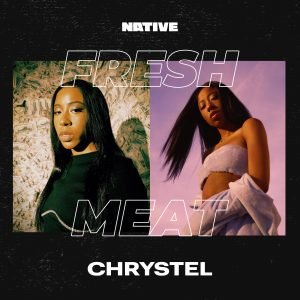
We admit we were a little late to discovering Chrystel–but this doesn’t mean you should be late to the party too. First gaining our attention through her scene-stealing appearance on DND Section’s “Darling” back in 2020, the singer’s alluring and passionate vocals provided a much-needed combination of heartfelt singing and technical songwriting ability unlike most of her peers today.
Digging back into her discography, you’ll discover that Chrystel has been making music since she was nine years old. A first-generation bilingual African who moved to Utah when she was much younger and then later to Atlanta in 2015, Chrystel got her big break in 2019 when she earned songwriting credits on Dreamville’s compilation project ‘Revenge of the Dream III’ and Baby Rose’s debut ‘To Myself.’ However, it’s on her solo work that she seems to thrive the most.
Growing up on a musical diet of genre-bending artists such as Stromae and Rihanna, Chrystel’s music is an amalgam of a range of influences including West African pop, Congolese Rumbas and Country music. She makes beautiful love songs armed with tangible emotion that permeates off our screens. If you’re looking for a place to get into her music, we’d recommend her 3-pack single titled ‘Prey’ which was released earlier this year. “Thunder” is an atmospheric number that examines Chrystel’s state of mind with a scalpel-like examination while “Hot Star” is a groovy anthemic number that finds her delivering emotionally layered lyrics and “Good Thang” is an anti-love anthem about realising one’s worth. Her deep understanding of her psyche and those of her peers results in music that is both relatable, universal and pensive, providing listeners with music that sees them at the base of their emotions.
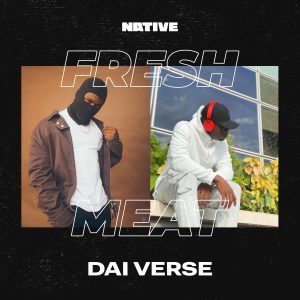
Making his debut at the start of 2020, newcomer Ifeanyi Chineme Lennon, popularly known as Dai Verse is a singer and songwriter with the right blend of lyrical vulnerability and catchy songwriting. Born and raised in Surulere, Dai Verse’s love for music and performing started at a young age when he began creating freestyling videos on his social media pages. He soon plucked up the courage to share these releases on Soundcloud before releasing his debut single “Love” in 2019. His intriguing vocals earned him our attention but he’s been able to retain this by delivering soothing and sumptuous love songs that sound more bittersweet than outright sad.
Dai Verse first gained traction in 2020 with the release of the Zugo-assisted “Colorado,” an earworm track that weaves relatable stories about young romance, as the singer likens the effect his partner has on him to the effect of a hallucinogenic strain of marijuana known as Colorado. The metaphors have only grown more poignant with each new release. The Soundz-produced “Your Body (Cocaine),” similarly finds the singer drawing parallels between his love interest and the harmful class A drug, cocaine. While he certainly doesn’t hold back from stating his admiration for this woman, Dai Verse also recognises that their relationship is ultimately built on his infatuation with her, a detail that signals their eventual end. Still, he is more concerned with tracking the jovial pursuit of love and loss which characterises many Afropop releases.
Already, “Cocaine” is garnering Dai Verse the attention he needs to enter the next phase of his budding career. Hitting a milestone record of over 20 million streams across all platforms earlier this month, the singer has kept his releases short and sparse over the past few months since he shared “Your Body (Cocaine)” but he’s already gracefully distinguishing himself from the fold with a cryptic online personality (Dai barely reveals his face which is typically clad with a balaclava or trucker hat) that has fans guessing his real identity. Instead, the music does the talking as he recently echoed, “Music is the heartbeat of the universe, and my music is driven by passion and love for the sound.” With a knack for blending catchy Afropop rhythms with soothing R&B melodies, Dai Verse is one to watch before the new year.
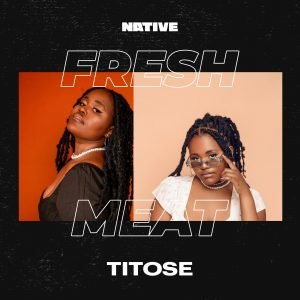
Fast-rising Botswana-born singer and songwriter Titose has a voice that will stop you in your tracks mid-listen. Evoking the warmth of silk sheets and armed with a keen eye for catchy melodies, Titose has been taking several assured steps towards the powerhouse that she is capable of becoming. Her string of releases has provided a protective balm for listeners in search of some aural healing with its polished production and emotion-laden writing.
Titose kicked off her passion for music at a very young age, encouraged by the unwavering support she received from her musical family. While her peers pursued professional careers, there was never a moment of doubt in Titose that she couldn’t forge her own singing career, despite the dearth of success stories in these parts. In a recent interview, the singer shared that this overwhelmingly firm sense of belief comes from years of nurturing at home. “I come from a musical family,” she shared. “I sing, my sister and my brother too. A cousin and an uncle are acclaimed musicians. So I grew with music [being] a part of my life,” she continued during the interview. Ingrained in her DNA from early, Titose would spend most of her formative years forging her own distinct sound, which rests firmly at the intersection of R&B, Afropop, Hip-Hop, Trapsoul and more.
Titose shared her first single on Soundcloud when she was 16. The mid-tempo number titled “Colour Blind” was actually a cover for an original song inspired by a Glee episode she had watched. “Please don’t mind the quality, I was like 16,” she warned listeners at the time, worried that her music would not land the desired impact. However, the song fared better than she expected. Today, “Colour Blind” has over a thousand listens and counting on Soundcloud, a feat worthy of celebration from an artist on the cusp of an explosion. Motivated by these reactions, Titose then officially began releasing music three years ago. Her first official single “Drowning”, a slow R&B fusion track was released in August 2019 and was soon followed this closely with the release of her sophomore single “Lights Off” during the peak of the COVID-19 lockdowns last year. While each new release adds a layer of intrigue to her artistry, a worthy starting point for anyone looking to dig into her discography would be her debut EP ‘Was It Something I Said?’
Over 8 soul-baring tracks, Titose ruminates on relatable topics for young women including tales of love, life, friendship, becoming and more. Each track on the project tells a different story, however, they are mostly driven by personal experiences, creating honest tracks that intimately mimic a late-night conversation with your girlfriends. Across her short but sweet discography, Titose’s personal and artistic growth is crystal clear. This year already, she’s enjoyed notable career highlights such as joining the talented spate of artists on the Platoon roster and reached her first 200,000 streams milestone. With all this and more music planned for 2022, next year may very well bring the big break she desires.
Featured image credits/NATIVE
Words by Ada Nwakor, Dennis Ade-Peter, Wale Oloworekende, Wonu Osikoya and Tami Makinde

